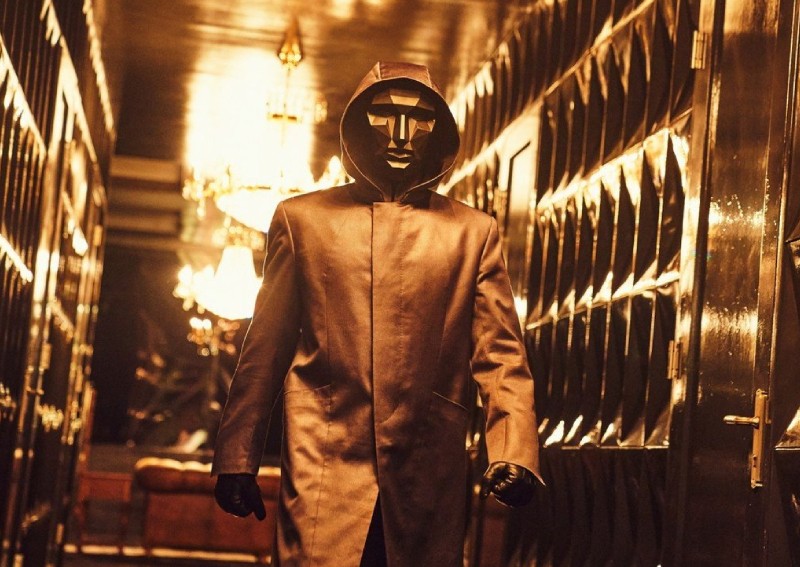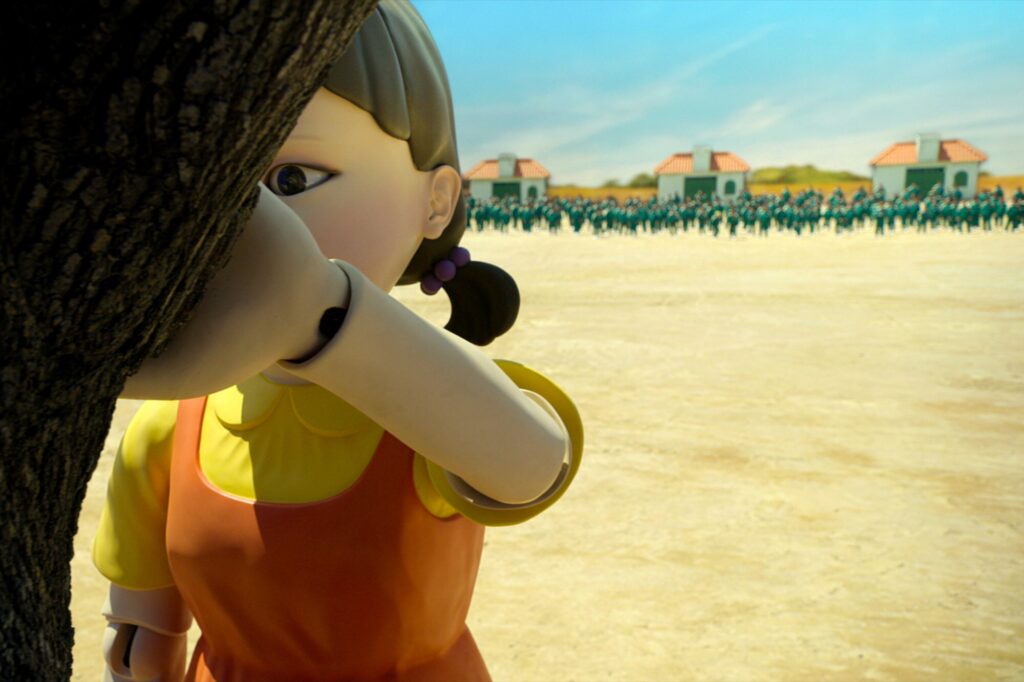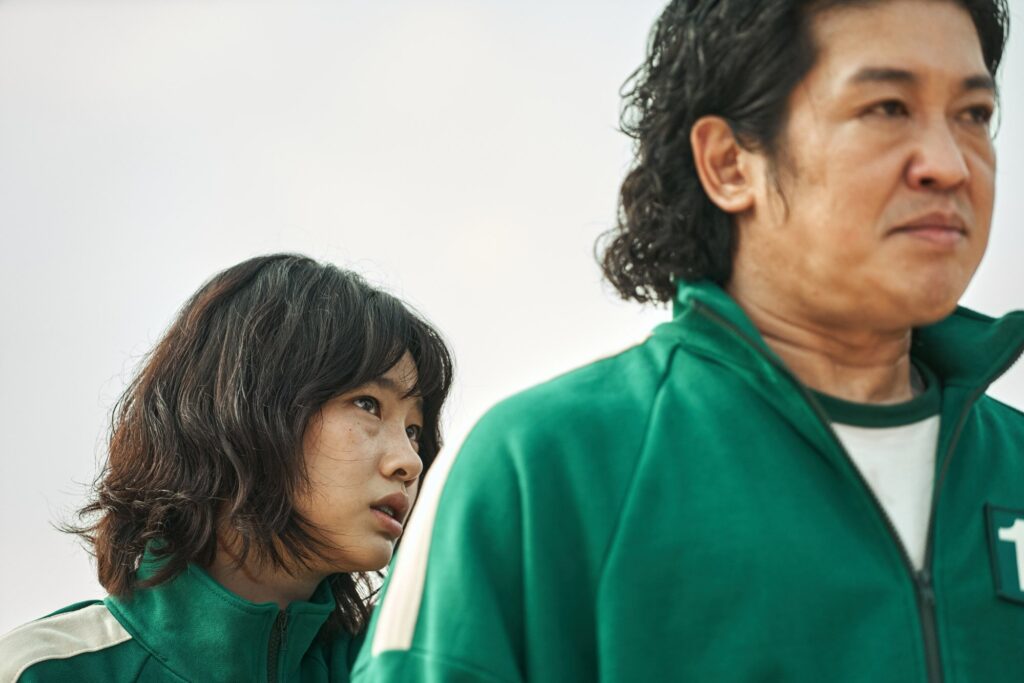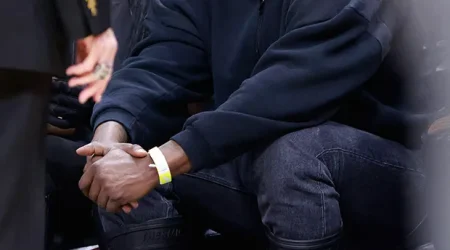Squid Game plot holes and loose ends that undermine the Netflix hit

Netflix
This article contains spoilers.
Squid Game is one of the most successful Korean drama series ever, with millions of people worldwide revelling in the explosive climaxes, the unflinchingly bloody sequences and the slow disintegration of some characters’ honour and morality.
Using children’s games in a deadly (and fatally greedy) competition for the big prize was an inspired choice. Yet the series, seemingly set in present-day South Korea, leaves more uptight viewers dismayed when loose ends are never satisfyingly resolved and instead leave a long-lasting aftertaste of disbelief.
Here are some of the more difficult-to-swallow examples.

PHOTO: Netflix
1. Maybe it’s a ridiculously innocent question, but how would an evil genius recruit a number (it remains unclear exactly how many) of masked guards willing to mow down helpless and unarmed contestants with weapons that look like submachine guns? Are so many people really that evil?
2. Why were the police officer’s mobile phone messages to his superior officer left dangling? Was there a signal on the island, or not? And if there was, and the messages were sent, where was the police response?
3. Why hadn’t the game’s front man concocted a plausible story for his absence for his friends and family, knowing surely that his police officer brother would go looking for him?
4. At one point the contestants vote to end the contest and they all leave, blood-spattered and horrified. But seemingly too few go to the police to raise any kind of real suspicion or warrant any official investigation. Only Gi-hun the gambler – later the overall winner of the savage game – is shown reporting the mass slaughter to the police. In an extraordinary coincidence, he was overheard by the officer whose brother was central to the game.
5. Why are the VIPs wearing such ornate, and seemingly heavy, masks in the room where they were viewing the contest? The mirror-mosaic masks look wonderful, but anyone who has worn an elaborate fancy-dress mask for any length of time knows the discomfort can become unbearable, like an itch that can’t be scratched. So why not provide a simple and easy-to-wear mask for viewing pleasure? Perhaps the idea is to convey a message of dissolute and decadent wealth, rather than realism.

PHOTO: Netflix
6. Why would the guards embark on a difficult and delicate organ-harvesting operation, knowing the game’s leaders were capable of easy murder? How likely was it they could find an organ-harvesting doctor among the prisoners, and one who was willing to co-operate? Or to find buyers and organise transport for the harvested organs, assuming the harvest would go ahead?
7. Why didn’t the gambler Gi-hun use any of his winnings to pay off his debts? Or buy new clothes? Or reunite with his daughter? Or help the poor? A year after his big win he seems to be a shambling and poverty-stricken bum. He may have been wracked by guilt, of course, but guilt had never seemed to prevent him from ruining his mother’s life.
In the end, Squid Game is a spellbinding piece of drama and it might be best not to think too much about the theoretical nuts and bolts holding it together, but just sit back and watch the spectacle. Maybe wearing a mirrored mask.
Squid Game is streaming on Netflix.












Leave a Reply